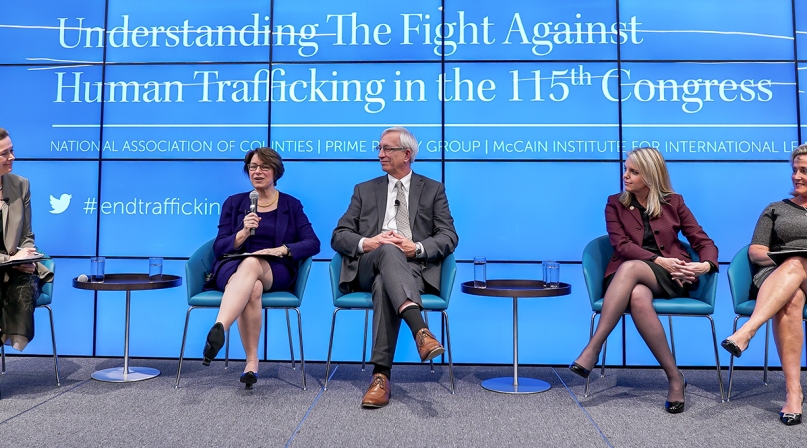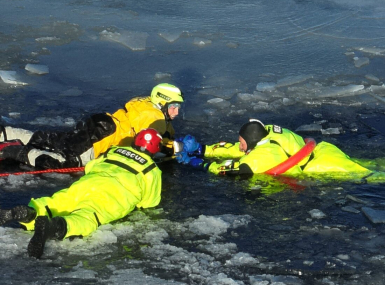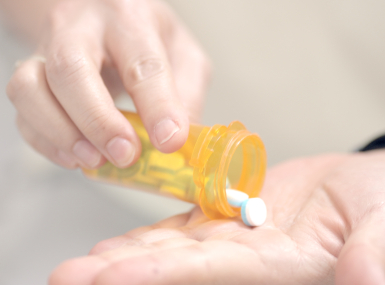Panel explores human trafficking fight’s fate in 115th Congress

Human trafficking panel stresses aiding victims, targeting perpetrators
Although inroads have been made in the fight against human trafficking in the United States, much more needs to be done, county officials and others said March 1 at a town hall-style meeting at NACo headquarters. The panel discussion and Q&A, “Understanding the Fight Against Human Trafficking in the 115th Congress,” was hosted by NACo, The McCain Institute and Prime Policy Group.
Human trafficking is a form of modern-day slavery in which victims are controlled by traffickers for commercial sex acts or labor services. The National Center for Missing and Exploited Children has estimated that one in six endangered runaways are likely to be sex trafficking victims. The National Human Trafficking Hotline reports that 7,572 human trafficking cases were reported in 2016.
“We surveyed the sheriffs and this issue kept coming up,” said Matt Chase, executive director of NACo. “These are victims, not criminals. Underage folks especially are being forced into this behavior, from Tysons Corner, Va. to Houston to the oil and gas fields of North Dakota.”
Discussion moderator Martina E. Vandenberg, founder and president of The Human Trafficking Pro Bono Legal Center, spoke before a packed conference center with panelists Sen. Amy Klobuchar (D-Minn.), Rep. Ann Wagner (R-Mo.), Vice-Mayor Melissa McKinlay of Palm Beach County, Fla. and Ramsey County, Minn. Commissioner Jim McDonough about their experiences as policymakers combating human trafficking.
Creating awareness at the local level
Many trafficking victims are from the immigrant population as well as the child welfare system, McKinlay said. The ACLU reports that undocumented immigrants are extremely vulnerable to trafficking because of fear of law enforcement and deportation.
One of the ways some counties in Florida are reaching victims is by posting hotline phone numbers in areas where they might be located, such as strip clubs and massage parlors, McKinlay said. Code enforcement officers ensure the signs are in place.
The signs read: “If you or someone you know is being forced to engage in an activity and cannot leave, whether it is prostitution, house work, farm work, factory work, retail work, restaurant work or any other activity, call the National Human Trafficking Hotline.”
The National Human Trafficking Hotline, 888.373.7888, is operated by Polaris, a non-profit. Statewide in Florida, the hotline signs are also required (since January 2016) to be posted in airports, welcome centers and emergency rooms.
Partnering with industries where trafficking occurs
Industries where human trafficking often occurs are also helping in the fight to combat human trafficking, participants at the March 1 panel discussion said. Those industries include hotels and motels, airlines and the trucking industry.
Employees who work in these industries are being trained to spot signs of human trafficking. Groups that provide training include Airline Ambassadors International, the American Hotel and Lodging Association and Truckers Against Trafficking.
Panelist Wagner said she planned to attend an anti-trafficking event back in her home state with Truckers Against Trafficking, who distribute educational materials about trafficking to truckers.
Seeing victims as victims
In Washington County, Minn., county hotel inspectors work with hotel employees to help identify possible traffickers. The county’s director of public health told KARE-TV that “we’re all in this together, so we think it’s a nice role since we’re already present in those facilities, to be doing our part to stop trafficking.”
An observation such as seeing very little luggage can be a tip-off. “If they’re there for a week, it shows that they’re probably not staying there for the week or there is something else there.”
In Detroit, a non-profit called Alternatives for Girls offers help for victims in the form of crisis counseling, hygiene supplies, clothing, drug treatment referrals and transportation to safe lodging.
Before her work on Capitol Hill, panelist Sen. Amy Klobuchar (D-Minn.) said felony and juvenile cases were a part of her workload as a county attorney for eight years. “The Internet was new and at first, it was just a bunch of photos on someone’s computer.”
In Congress, Klobuchar introduced the Safe Harbor bill, based on a model from her home state, to see victims as victims and not as criminal “child prostitutes.” A provision in the law encourages all states to have a safe harbor provision to help ensure minors who are sold for sex aren’t prosecuted as defendants but instead are treated as victims. It was signed into law in 2015.
Separating victims from traffickers
Fellow panelist Ramsey County, Minn. Commissioner Jim McDonough, said that shelter is offered to trafficking victims and attempts are made to relocate them away from their former traffickers.
“Traffickers could pull up in the parking lot…we’re trying to put some distance between them [the victims] and their traffickers.”
Minnesota’s safe harbor law was not easy to get approved, he said. It was first approved for victims up to age 16, then for victims up to age 18 and is now approved for victims up to age 24.
Under the law, signed in 2011, victims are to be treated with dignity and respect, and directed to support services, and shelter and housing that meet their needs and recognize their right to make their own choices.
Attachments
Related News

County officials moonlight in search and rescue roles
For some county officials, participating in search and rescue operations is another way to serve their communities, and make it safer for people to enjoy natural creation resources.

SUPPORT Reauthorization Act of 2025: What it means for counties
On December 1, the bipartisan SUPPORT for Patients and Communities (SUPPORT) Reauthorization Act of 2025 (H.R. 2483) was signed into law. The reauthorization renews vital federal funding for programs that seek to prevent opioid overdoses and expand treatment and recovery options.

DHS releases FY 2026 funding opportunities for World Cup and Counter-UAS grants
The U.S. Department of Homeland Security (DHS) and the Federal Emergency Management Agency (FEMA) have released the FY 2026 Notices of Funding Opportunity (NOFOs) for two major new homeland security grant programs: the FIFA World Cup Grant Program and the Counter-Unmanned Aircraft Systems (C-UAS) Grant Program.
